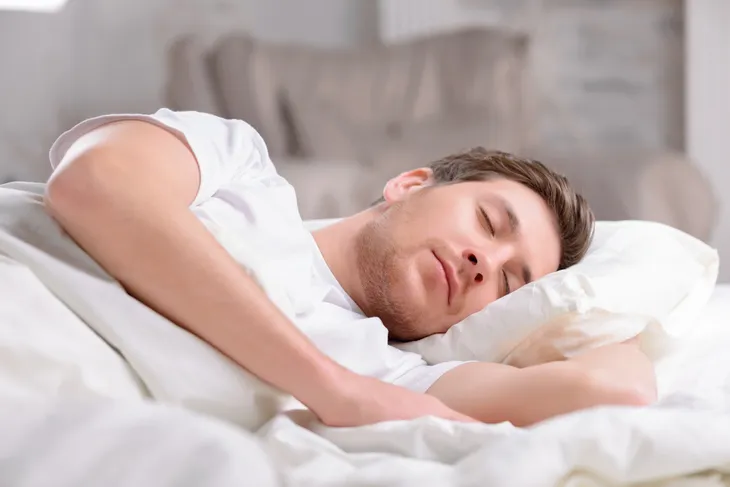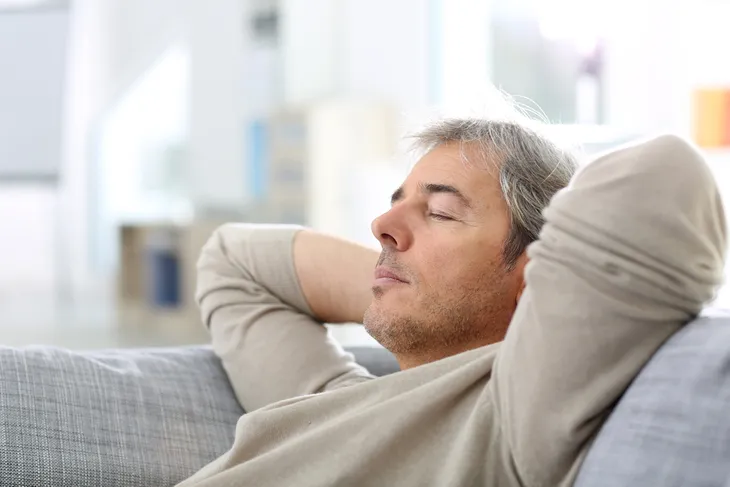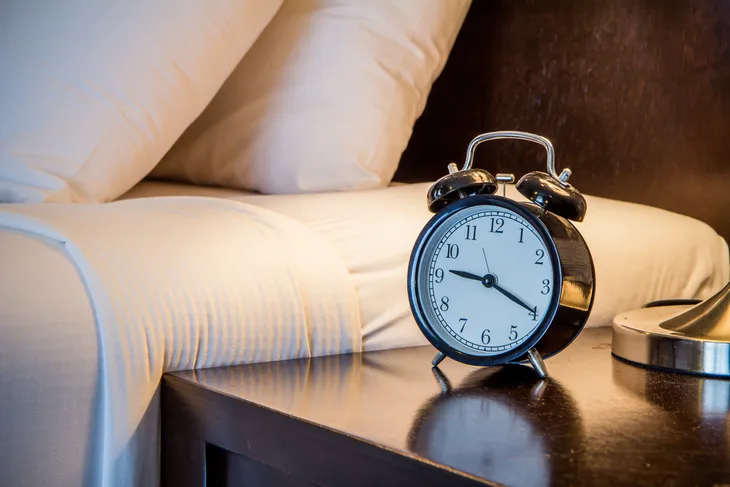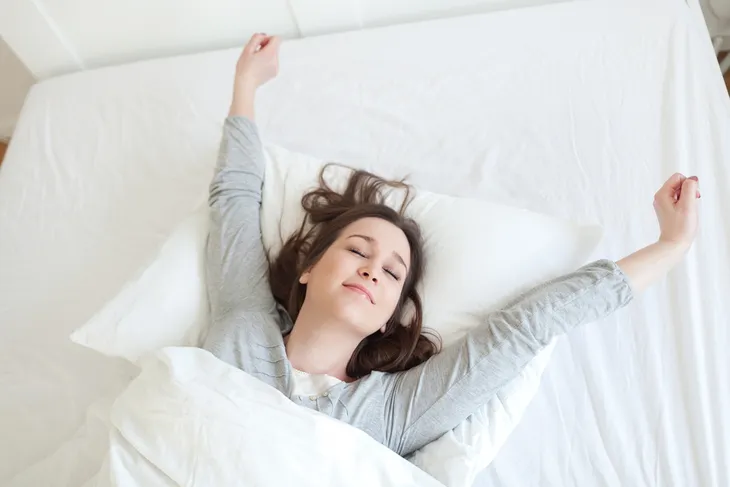Healthy adults need 7 or more hours of sleep per night to operate at an optimal level. We can already hear you saying, “I don’t have that much time,” or “Yeah, right!” But before you write the CDC guidelines off as some utopian fantasy, consider the downsides of not getting enough sleep. Roughly 35-percent of all American adults don’t get enough sleep on a consistent basis. Not getting enough sleep increases your risk of obesity, heart attack, cancer, arthritis, depression, diabetes, chronic kidney disease, and a lot more. Fortunately, getting more sleep is possible, with the right guidance, persistence, and routine.
Prioritize Sleep
There are plenty of things keeping you up at night. TV, work, family, friends… all of them can impede your ability to get a full night’s rest if you let them. The trick to getting enough sleep though is not letting them.
Whether you like it or not, your ability to actively enjoy your day hinges on the amount of sleep you got the night before. Grogginess, a lack of energy, and a lack of focus can all be remedied with a little bit of discipline. But don’t take our word for it. Make sleep a priority tonight and see how great you feel tomorrow.
Exercise
Exercise is just as essential as sleep to feeling great and lowering your risk of developing various late-in-life health conditions. More, integrating exercise into your every day can help you fall asleep faster, and improve the overall quality of the sleep that you do get.
When it comes to sleep though, you’ll want to make sure that you aren’t scheduling your workouts too close to bedtime. Aerobic exercise causes the body to release endorphins, which create a level of brain activity that may keep some people from falling asleep. So don’t expect to be able to fall asleep right after your workout, and instead give your body enough time to wind down after a good sweat session.
No Late Night Snacks
You may think that going to bed with your tummy rumbling will negatively impact your sleep, but the opposite is actually true. Eating an hour or so before you turn out the lights is more likely to interrupt your rest. That’s because you haven’t given your stomach enough time to digest, and thus increase your chance of discomfort, heartburn, and sleep interruptions.
Eating right before bed can be done properly. A light, nutritionally balanced snack that incorporates fiber, healthy fats, and proteins can certainly be helpful. But it’s best to stay away from wolfing down a full meal or snacking on unhealthy bits and bites before bed.
No Nightcaps
I’m sure a few *cough* friends that you know *cough* enjoy an alcoholic beverage or two before heading off to bed. Some call them “nightcaps” and rely on them to get to bed faster. And sure, alcohol can indeed help you fall asleep faster, but that effect quickly wears off, and it usually produces sleep of lower quality.
Alcohol can increase the number of times you wake up during the latter part of the night and prevents you from getting the necessary REM sleep required to wake up feeling rested.
Stop Napping
A lack of sleep at night leads to grogginess, and grogginess often leads to napping during the day. Naps, especially when done later in the afternoon, will inhibit your ability to fall asleep at night and make you more prone to stirring at night.
It’s a vicious cycle that plagues countless adults all over the world. The solution, stop napping and save your rest for the evening time.
Caffeine With Caution
Let’s get real, you knew this one was coming. Caffeine is a magical substance that fuels the best and brightest to get up and go on a daily basis. But it’s also a bit of a double-edged sword.
No, I’m not going to sit here and bad-mouth coffee. That would be heresy. Instead, I’m here to caution you on drinking too much coffee later on in the afternoon. You may not think that your 5 p.m. drive time mocha is a problem, but your sleeping habits certainly do. The effects of caffeine can last up to 7-hours for some people, so think about that the next time you blame your inability to fall asleep on the scary movie you watched on the weekend.
Create a Bedtime Routine
Routines get a bad rap, but building a nightly bedtime routine is a foundational component of healthy sleep hygiene. Building one out and sticking to it can, over time, help you wind down faster and fall asleep quicker.
Everyone is different, but generally, you’ll want to start your bedtime routine roughly 30 to 60 minutes before you go to bed. Your routine can include just about anything, including hot caffeine-free tea, a hot shower, stretching, meditation, soothing music, or reading. It’s really up to you! So make your bedtime routine as fun as you can so that you stick to it as often as is reasonable.
Curate a Sleep-Positive Bedroom
If your bedroom only serves as a reminder of all of the fun stuff that you like to do, or all of the not-fun stuff you have to do tomorrow, you’re going to have a bad time. Your bedroom should be an oasis dedicated to sleep and relaxation only. So keep it as tidy as you can, and maybe even paint it a soothing color to help ease your pre-sleep mind.
It’s also sound advice to upgrade or change the elements of your bedroom that impede your sleep. If too much light gets in, invest in blackout curtains. If your pillow or mattress doesn’t cut it, replace them. Remember, investing in a better night’s rest will pay dividends every single day. So start investing now!
Eliminate Electronics
Using electronics of any sort an hour before bed can interfere with the amount of sleep that you get as well as its quality. You’ll definitely want to avoid bringing your laptop or cell phone to bed with you. You should probably unmount the LCD TV from the wall too.
Nobody is perfect, and sometimes you get urgent texts and emails at all hours of the night. But as a general rule, you’ll want to make a real effort to eliminate electronics from your bedroom and limit your exposure to them an hour or so before your head hits the pillow.
Bedtime Consistency
When it comes to sleep, consistency is everything. Sticking to a consistent bedtime routine, and going to bed at the relatively same time every night, will help you fall asleep faster and produce better quality sleep. But there’s actually more to it than that.
Studies have shown that irregular sleep patterns actually increase an individual’s risk of obesity, hypertension, elevated blood sugar, and heart disease. That doesn’t mean that you must go to sleep at 10:05 p.m. every night for the rest of your life. But it does mean that you should approach your bedtime with these important insights in mind.
Wake Up Consistency
Your body operates on a sleep schedule, and as important as it is to make sure you get to bed at the right time every night, it’s just as important to wake up at a consistent time too!
Waking up at the same time every single day will help you feel more rested in the morning, and help you get to bed at the end of the night. No more over-sleep-induced grogginess for you! Set your morning alarm and actually wake up when it goes off. Your body will thank you for it.
The Takeaway
Sold on getting enough sleep yet? Healthy sleep hygiene impacts every area of your daily life and can lower your risk of chronic disease and mental health disorders. It makes you happier for longer. But Rome wasn’t built in a day, and neither was a healthy sleep routine.
If you liked what you’ve read and would love to put it into practice, you’re encouraged to do so gradually. Start by not taking your phone to bed with you, or turning off the TV for good at 9:30 p.m. Over time you will certainly notice a difference!















